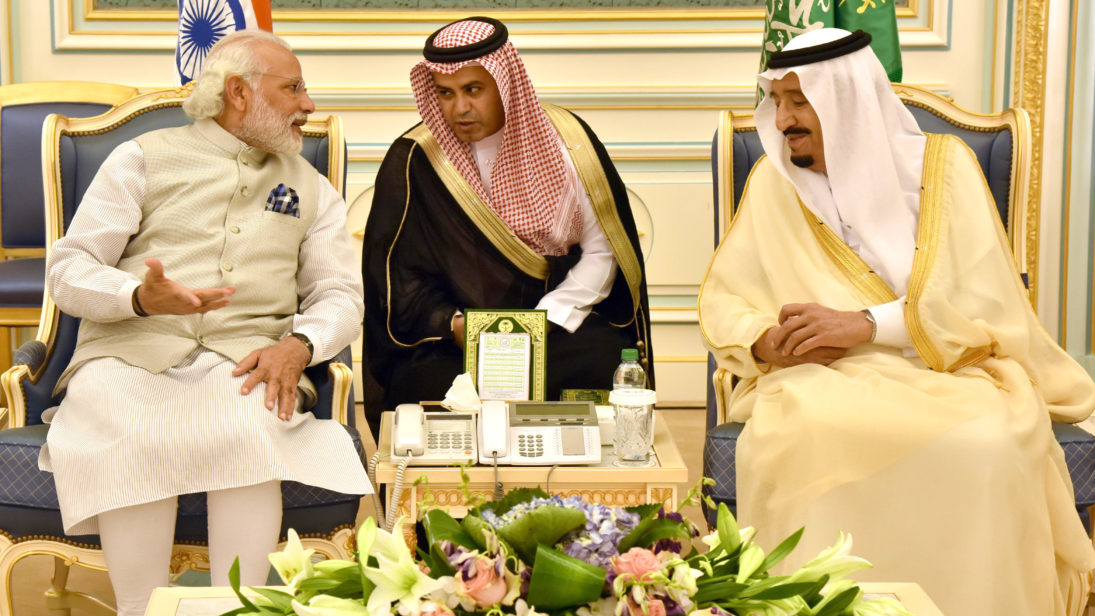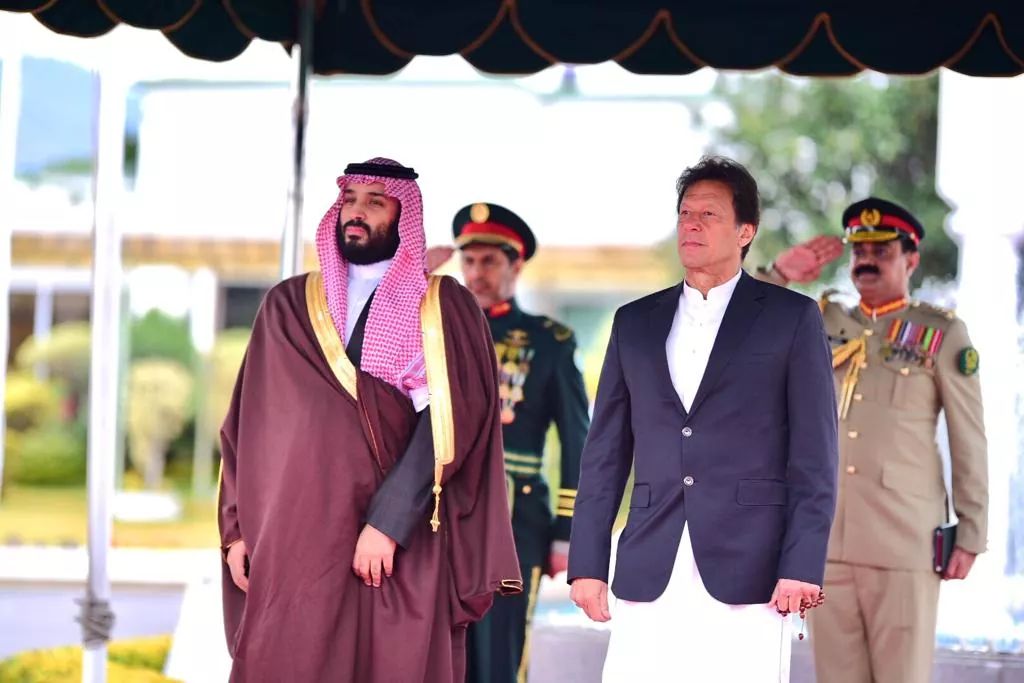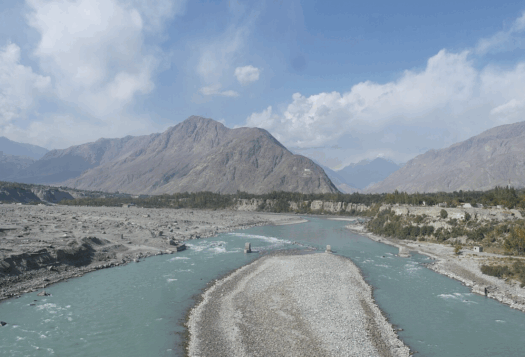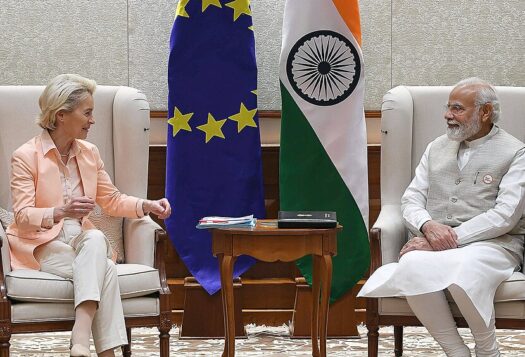
Ever since India’s decision to revoke Article 370 in Jammu and Kashmir in August 2019, Kashmir has remained central to Pakistan’s international engagements. However, despite impassioned pleas to galvanize the international community against India, Pakistan’s credibility problem, based in part on its allowance of terrorist safe havens, has ensured few takers for its narrative.
This time around, Pakistan’s fixation with Kashmir has rankled its primary ally in the Islamic world, Saudi Arabia. The two countries are historically close – so close that Prime Minister Imran Khan chose to personally chauffeur the Saudi Crown Prince Mohammad Bin Salman (MBS) during his February 2019 trip to Pakistan, later telling the prince that his own popularity could win him an election in Pakistan. Coupled with geopolitical realignments and deepening fissures in the Islamic world, India’s rise as a viable strategic and economic partner has further contributed to strains in the Saudi-Pakistan relationship, while the Indo-Saudi relationship has flourished.
Coupled with geopolitical realignments and deepening fissures in the Islamic world, India’s rise as a viable strategic and economic partner has further contributed to strains in the Saudi-Pakistan relationship, while the Indo-Saudi relationship has flourished.
Diplomacy Gone Awry
On the one-year anniversary of India’s revocation of Article 370 this August, Pakistan’s Foreign Affairs Minister Shah Mehmood Qureshi issued an unprecedented ultimatum to the Saudis – if they refused to call a meeting of the 57-nation Organization for Islamic Cooperation (OIC) on the Kashmir issue, he would ask Imran Khan to “call a meeting of the Islamic countries that are ready to stand with us on Kashmir.” Perhaps unsurprisingly, the Kingdom reacted to Qureshi’s ultimatum by demanding a return of USD $1 billion of the critical $3 billion it had lent Pakistan to help navigate its 2018 balance of payments crisis, as well as delayed the renewal to defer payments on Saudi oil supplies. To pay back the Saudis, Pakistan borrowed the USD $1 billion from China, in what Hussain Haqqani, Senior Fellow at the Hudson Institute, refers to as “a classic case of borrowing from Peter to pay Paul.” Pakistan’s turn to China is not surprising given that Pakistan’s financial dependency on China has increased, especially in recent years. This has resulted in many observers worrying about the consequences of China’s alleged debt-trap diplomacy for Pakistan.
Army Chief General Qamar Javed Bajwa, wielding his arguably outsized influence, flew to Saudi Arabia in August to discuss “military to military ties including training exchanges,” amidst attempts to soothe tensions. But in a possible deliberate snub by the Saudi leadership, MBS denied him an audience.
Pakistan’s Value Erodes
As with China, Pakistan has an asymmetrical relationship with Saudi Arabia despite longstanding religious, economic, and security ties. Most important is its reliance on the Saudis for frequent economic bailout packages and loans needed to sustain its finances. In return, the Pakistan Army has provided security to the Saudi royal family and mostly toes their line on foreign policy. Considering this asymmetry, researcher Arhama Siddiqa previously cautioned Pakistani policymakers on the “terms and conditions” attached to Saudi aid. Beyond economics and security ties, the Saudis have historically been amongst Pakistan’s strongest supporters on the Kashmir issue, and the two nations have also been strategic allies in the Afghan conflict. In addition, 50 percent of Pakistan’s oil imports are from the Kingdom.
But cracks have appeared in this relationship spanning decades of closeness and cooperation, and regardless of the rhetoric that “the hearts of the Pakistani people beat with the Saudi people,” espoused by the Pakistan Army spokesman, a shift is occurring as Pakistan’s value seems to be eroding for the Saudis. The friendship has been complicated by factors beyond India. For example, in 2015, Pakistan refused to join the Saudi-led coalition in Yemen. Islamabad’s recent flirtations with the creation of an alternate Islamic club involving Turkey, Malaysia, and Qatar, among others, which could challenge Saudi preeminence in the Muslim world, have ruffled the Kingdom’s feathers. In fact, an OIC meeting on Kashmir was meant to be Riyadh’s concessionary quid pro quo to Islamabad for pressuring Pakistan to skip this alternate Islamic summit in Kuala Lumpur in November 2019.

India’s Role in the Saudi Long Game
MBS’s aims to transform the Kingdom into a diverse productive economy with reduced dependence on the oil and gas sector are impacting the Kingdom’s approach to international relations. To achieve this economic diversification, MBS has enacted sweeping reforms including the privatization of state assets, the creation of sovereign funds, plans to manufacture defense equipment, and the transformation of the Kingdom into a “global hub” of transportation between Europe, Asia, and Africa. The expansion of U.S. shale oil production has made the global oil market more competitive and the COVID-19 pandemic has caused a collapse in oil prices. These economic realities, coupled with Western anti-Saudi sentiment following the murder of journalist Jamal Khashoggi and the humanitarian catastrophe in Yemen, have contributed to Saudi Arabia’s pivot towards Asia.
Unlike the Saudi-Pakistan relationship, the Indo-Saudi friendship is on an upward trajectory. American pressure has compelled India to replace Iranian oil through new sources, and Saudi Arabia is filling the void by exporting almost 800,000 barrels of crude to India every day. Moreover, the relationship has moved beyond oil to include massive Saudi investments in India’s infrastructure, petrochemical, and mining sectors. Saudi Aramco’s bid to purchase a 20 percent stake in Reliance Industries oil-to-chemicals business is considered one of the largest ever foreign direct investment deals in India. These investments in India fit into the wider Saudi Vision of transforming state-run Aramco into a global industrial conglomerate and a leader in refining and exports by diversifying its portfolio. Even within the security domain, the partnership is burgeoning with enhanced counterterrorism cooperation and the first joint naval exercise conducted in December 2019.
The Indian economy was seven times larger than Pakistan’s in 2019. Despite suffering devastating consequences during the pandemic, with its GDP shrinking by a record 23.9 percent in the April-June quarter, India’s huge market of 1.3 billion people and growing energy needs will likely continue to render it a lucrative destination. The figures are telling – Indo-Saudi annual bilateral trade is at USD $27 billion, while Pakistan-Saudi trade stands at a mere $3.6 billion in comparison. This has led the Kingdom, as part of its Vision 2030, to identify India as one of eight partner nations. The contrast could not be starker – India is a viable economic partner, while a debt-riddled Pakistan continues to depend on Saudi economic relief.
The blossoming of Indo-Saudi ties have been supplemented with good diplomacy, as Prime Minister Modi’s bonhomie with Gulf leaders has borne fruit. To Pakistan’s chagrin, following an outbreak of hostilities with Indian forces over Balakot in February 2019, the OIC invited India’s Former Foreign Minister Swaraj as its guest of honor at a meeting on March 1. Saudi Arabia and its allies, Bahrain and the United Arab Emirates, have in recent years conferred upon Modi their highest civilian awards. Modi also delivered the keynote address at Riyadh’s Future Investment Initiative Summit where the India-Saudi Strategic Partnership Council was formed.
Even more crucial is the timing and symbolism of these overtures – most took place against the backdrop of India’s revocation of Kashmir’s autonomous status and Pakistan’s cries for international support. This has only heightened the insecurities of Pakistan’s leadership and has given the impression to the international community that the Saudis and its Gulf partners have chosen India’s side in the Kashmir conflict.
Energy-dependent India, on the other hand, can celebrate the fact that its vibrant Gulf diplomacy, coupled with concrete economic engagement, is paying dividends and placing it on track to become the Gulf’s preferred partner in South Asia.
China Remains Pakistan’s Primary Partner
Despite episodes of turbulence, security ties may continue to be a guarantor of the Pakistan-Saudi relationship. Saudi fears of the Taliban plus rival Iranian influence in Afghanistan following a possible American withdrawal or drawdown means Pakistan may continue to feature in Saudi Arabia’s strategic thought. Furthermore, the significance of Saudi Arabia joining the China Pakistan Economic Corridor (CPEC) as a third partner and investing USD $20 billion in Pakistan’s energy and infrastructure cannot be overlooked.
Yet, Khan’s emphasis on Pakistan’s future being “connected with China,” followed by Qureshi’s China trip on the heels of Bajwa’s visit to the Kingdom, indicates that Pakistan is well aware of its Saudi predicament and increasingly turning towards China. With China filling the economic vacuum, its tightening stronghold will undoubtedly have consequences for Pakistan’s future. Perhaps it is time Pakistan focuses on the dragon that is inside its gates instead of its disproportionate focus on India, which is damaging its historically strong international friendships. Energy-dependent India, on the other hand, can celebrate the fact that its vibrant Gulf diplomacy, coupled with concrete economic engagement, is paying dividends and placing it on track to become the Gulf’s preferred partner in South Asia.
***
Image 1: Narendra Modi via Flickr
Image 2: PTI via Twitter


